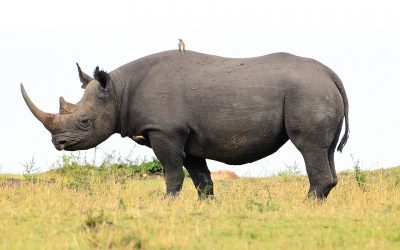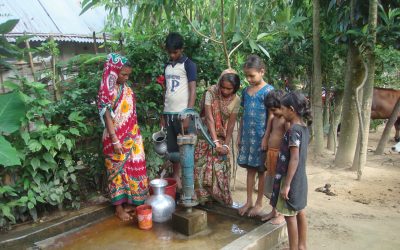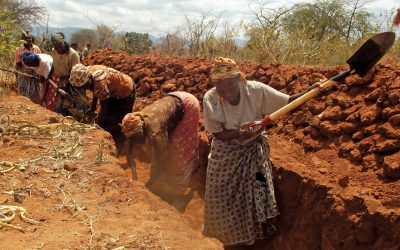During September world leaders met in New York to approve the next set of Development Goals produced by the UN Foundation. The Sustainable Development Goals (SDGs) replace the Millennium Development Goals, set in 1999 for a period of 15 years, and are designed to take more people out of poverty and promote prosperity by 2030.
The SDGs embrace all of the goals being superseded but also take into account climate change and, of course, ensure sustainability. In the run up to the UN Assembly in September a lot of thought, pre planning and discussion went into the setting and eventual agreement by 193 member states of the United Nations to the 17 goals.
A large team at the UN Foundation in Washington put the goals together and each has a specialist area they work on.
I made contact with Caroline Barrett who is an expert on the goals and how they relate to health.
Caroline explained that member governments had played a big part in setting the goals, and she immediately moved to cite the work that Rotary has done in conjunction with the Global Polio Eradication Initiative (GPEI) on polio.
We spoke a little about the Millennium Goals and the big difference, as I pointed out, is that they had moved from 8 to 17. Caroline said, “There was no direct carry over from the SDGs. They are all different goals since we made an effort not to silo them. Originally, there were three specific health goals but now there is one health goal across the disease issues.”
We also discussed how the new goals aligned with the Rotary Foundation Areas of Focus, and Caroline had familiarised herself with them before our conversation. She said: “All the Areas of Focus literally have a corresponding SDG.”
However, I pointed out that the SDGs went further since they covered climate change and environment. Caroline went on to say, “that some SDGs did cover clean energy and protecting the environment since it is considered work on these will help bring an end to poverty.” She added: “The partners, of which Rotary is one, do not have to work on every goal, especially if they have certain projects to continue with.”
One area that Caroline identified Rotary with was advocacy remarking, “Rotary should continue its advocacy with donor governments,” and she was interested in what comes after polio, “since the impact Rotary has made on polio is remarkable.” We went on to talk about Ebola and being ready in the future. “We need to protect our health systems from shocks like Ebola,” she said.
The interview was extensive and covered some wide-ranging topics and as we were finalising I had to ask if she thought the SDGs were achievable. Caroline was emphatic and said, “Yes, we always have to reach a balance of pragmatism and ambition and the UN member states have led a really good agenda that is in the middle. It is bold and ambitious but it is also achievable.”
The UN people I spoke with were wholesome of their praise for Rotary and they are certain that Rotarians will embrace the new Sustainable Development Goals for 2015.
New Sustainable Development Goals for 2015
GOAL 1 – End poverty in all its forms everywhere
GOAL 2 – End hunger, achieve food security and improved nutrition and promote sustainable agriculture
GOAL 3 – Ensure healthy lives and promote well-being for all at all ages
GOAL 4 – Ensure inclusive and equitable quality education and promote lifelong learning opportunities for all
GOAL 5 – Achieve gender equality and empower all women and girls
GOAL 6 – Ensure availability and sustainable management of water and sanitation for all
GOAL 7 – Ensure access to affordable, reliable, sustainable and modern energy for all
GOAL 8 – Promote sustained, inclusive and sustainable economic growth, full and productive employment and decent work for all
GOAL 9 – Build resilient infrastructure, promote inclusive and sustainable industrialisation and foster innovation
GOAL 10 – Reduce inequality within and among countries
GOAL 11 – Make cities and human settlements inclusive, safe, resilient and sustainable
GOAL 12 – Ensure sustainable consumption and production patterns
GOAL 13 – Take urgent action to combat climate change and its impacts
GOAL 14 – Conserve and sustainably use the oceans, seas and marine resources for sustainable development
GOAL 15 – Protect, restore and promote sustainable use of terrestrial ecosystems, sustainably manage forests, combat desertification, and halt and reverse land degradation and halt
biodiversity loss
GOAL 16 – Promote peaceful and inclusive societies for sustainable development, provide access to justice for all and build effective, accountable and inclusive institutions at all levels
GOAL 17 – Strengthen the means of implementation and revitalise the global partnership for sustainable development


























































